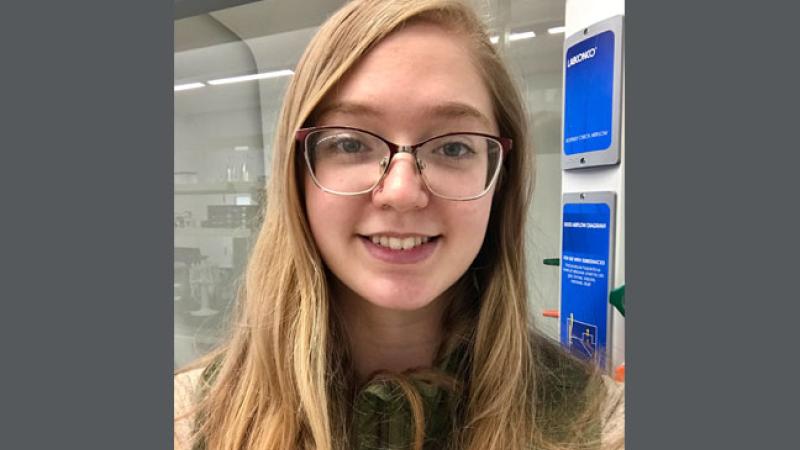Riley Barton will investigate effects of charred material in California rivers
May 3, 2023

Rensselaer Polytechnic Institute doctoral student Riley Barton has been selected as one of 87 outstanding graduate students in the United States by the Department of Energy’s (DOE) Office of Science Graduate Student Research Program (SCGSR).
The goal of SCGSR is to prepare graduate students for science, technology, engineering, or mathematics (STEM) careers critically important to the DOE Office of Science mission, by providing graduate thesis research opportunities through extended residency at DOE national laboratories. The awardees represent 58 different universities and will conduct research at 16 DOE national laboratories.
“This fellowship will be instrumental to my dissertation research and allow me to learn what it is like to conduct research in a government setting,” said Barton. “I’m very excited for this opportunity!”
Barton graduated from Rensselaer with a bachelor’s in chemistry and geology in May of 2020 and is now a doctoral student under Sasha Wagner, assistant professor in the Department of Earth and Environmental Sciences. Barton’s research broadly focuses on the biogeochemical cycling of organic carbon, including black carbon, in wildfire-affected aquatic systems.
The SCGSR program provides opportunities for graduate students to conduct part of their graduate thesis research at a DOE laboratory, in collaboration with a DOE laboratory scientist. Barton will perform her research at the Pacific Northwest National Laboratory (PNNL). One of the PNNL's Earth Systems Science Division’s primary goals is predicting the impacts of natural hazards such as wildfires and extreme climate events on Earth and human systems. The SCGSR research projects are expected to advance the graduate awardee’s overall doctoral thesis while providing access to the expertise, resources, and capabilities available at the DOE laboratories. At PNNL, Barton will study anhydrosugars, or low-temperature pyrogenic carbon.
“Through my collaboration with Dr. Allison Myers-Pigg, an anhydrosugar expert, I will develop a new, time-efficient, and cost-saving method for analyzing anhydrosugars in water,” said Barton. “Additionally, I will quantify anhydrosugars in water samples from coastal streams impacted by the 2020 CZU Lightning Complex Fires. I will predict the degradation and fate of both low- and high-temperature pyrogenic carbon from recently burned watersheds using a reactive transport model.”
“The SCGSR program provides a way for graduate students to enrich their scientific research by engaging with researchers at DOE National Labs, learning from world-class scientists and using state-of-the-art equipment and facilities. In addition, they get valuable opportunities to network and observe firsthand what it’s like to have a scientific career,” said Asmeret Asefaw Berhe, director of the DOE Office of Science. “I can’t wait to see what these young researchers do in the future. I know they will meet upcoming scientific challenges in new and innovative ways.”
Previously, Barton was awarded the Consortium of Universities for the Advancement of Hydrologic Science Inc. Pathfinder Fellowship that supported her travel to California wildfire field sites, the Limnology and Oceanography Letters Early Career Publication Honor, Rensselaer’s Founders Award of Excellence, the Rensselaer Graduate Fellowship, and the Sigma Xi Grant in Aid of Research.
“On top of her personal achievements, Riley plays a big role in training and fostering curiosity in the next generation of young scientists. She is a welcoming and supportive mentor to the undergraduate researchers in my lab,” said Wagner.
“The RPI community is proud of Riley Barton and her early accomplishments, and we anticipate hearing about exciting advancements emanating from her research thanks to her affiliation with Pacific Northwest National Laboratory,” said Curt Breneman, dean of Rensselaer’s School of Science. “Analyzing and understanding the composition of charred materials in waterways resulting from modern wildfires opens the door to improving the predictive capability of contemporary carbon cycling and climate models.”